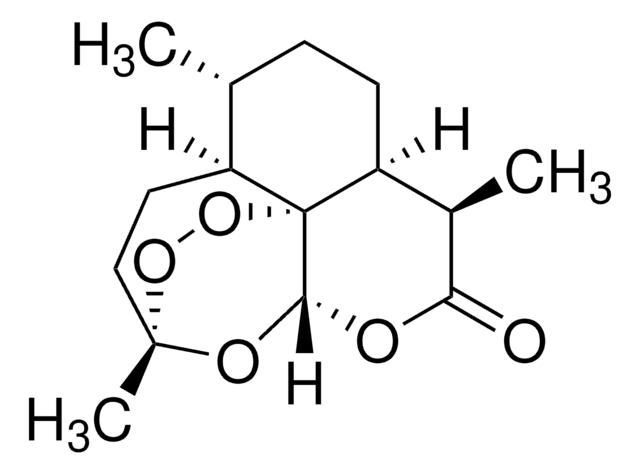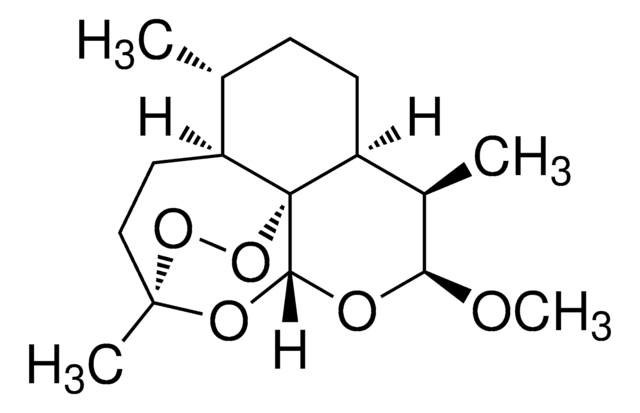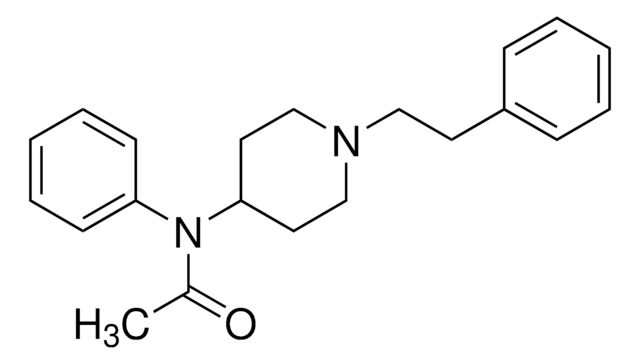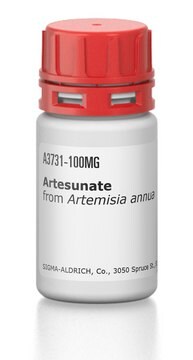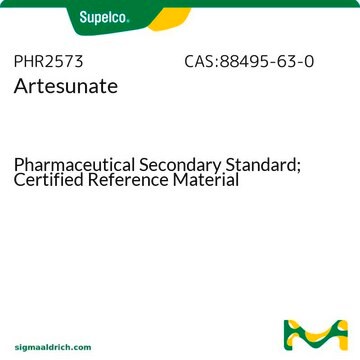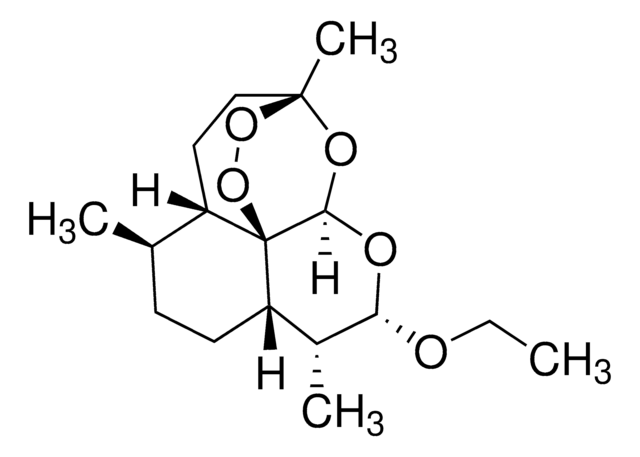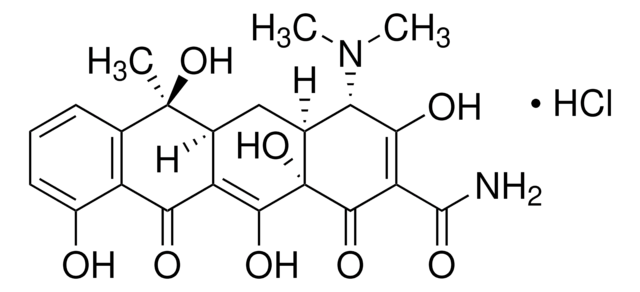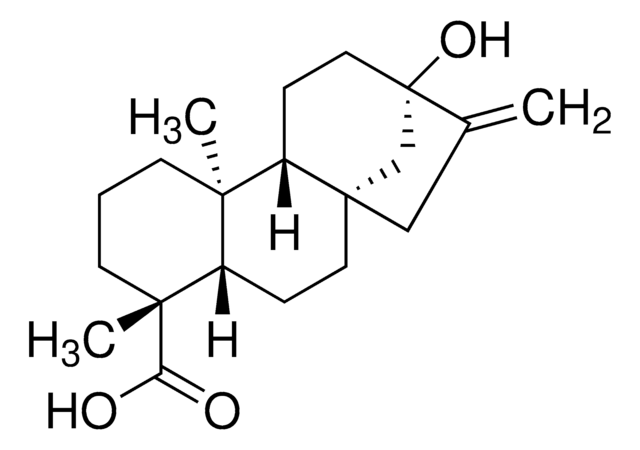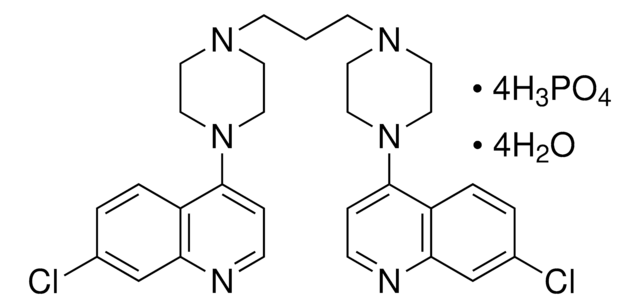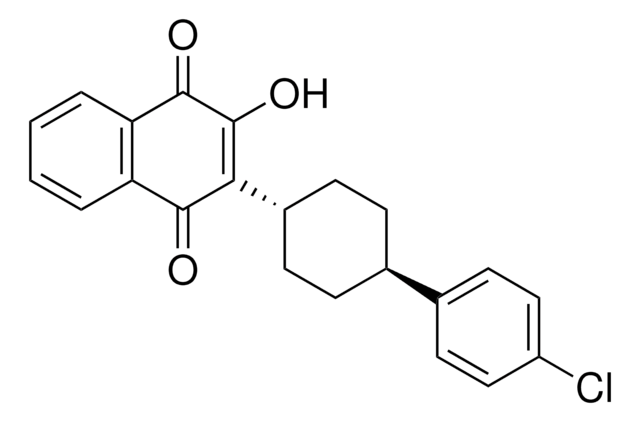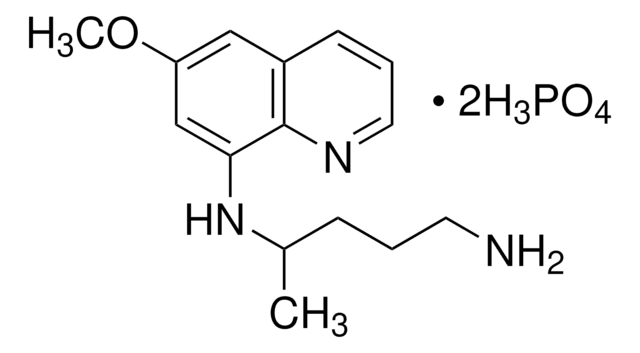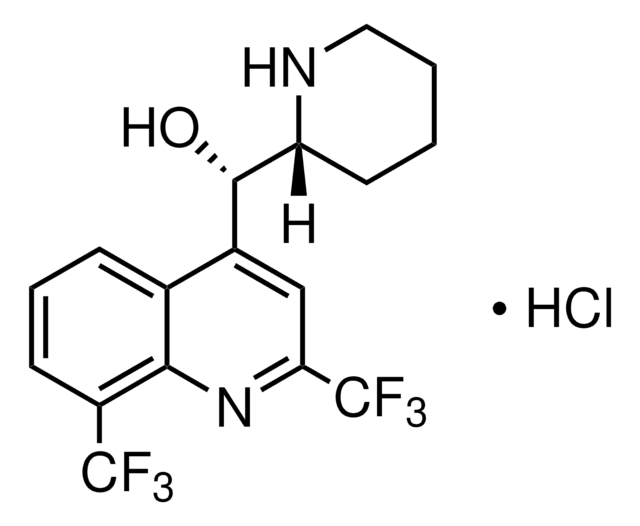A9361
Artemether
≥98% (HPLC)
Synonym(s):
Dihydroartemisinin methyl ether, Dihydroqinghaosu methyl ether, SM-224
About This Item
Recommended Products
Quality Level
Assay
≥98% (HPLC)
form
powder
optical activity
[α]/D +155 to +175°, c = 0.5 in methanol
color
off-white to light brown
solubility
DMSO: ≥20 mg/mL
originator
Novartis
storage temp.
room temp
SMILES string
CO[C@H]1OC2O[C@@]3(C)CCC4[C@H](C)CCC([C@H]1C)[C@@]24OO3
InChI
1S/C16H26O5/c1-9-5-6-12-10(2)13(17-4)18-14-16(12)11(9)7-8-15(3,19-14)20-21-16/h9-14H,5-8H2,1-4H3/t9-,10-,11+,12+,13+,14-,15-,16-/m1/s1
InChI key
SXYIRMFQILZOAM-HVNFFKDJSA-N
Looking for similar products? Visit Product Comparison Guide
General description
Application
- as an anti-schistosomal compound to test it effect on the larval stages of S. mansoni
- to sensitize mouse embryonic fibroblasts (MEFs) and human osteosarcoma HT1080 cells to cysteine starvation (STV)-induced ferroptosis
- to stimulate islets and its effect on α to β transdifferentiation
Biochem/physiol Actions
Features and Benefits
Signal Word
Danger
Hazard Statements
Precautionary Statements
Hazard Classifications
Acute Tox. 4 Oral - Org. Perox. D
Storage Class Code
5.2 - Organic peroxides and self-reacting hazardous materials
WGK
WGK 3
Flash Point(F)
Not applicable
Flash Point(C)
Not applicable
Choose from one of the most recent versions:
Certificates of Analysis (COA)
Don't see the Right Version?
If you require a particular version, you can look up a specific certificate by the Lot or Batch number.
Already Own This Product?
Find documentation for the products that you have recently purchased in the Document Library.
Customers Also Viewed
Our team of scientists has experience in all areas of research including Life Science, Material Science, Chemical Synthesis, Chromatography, Analytical and many others.
Contact Technical Service